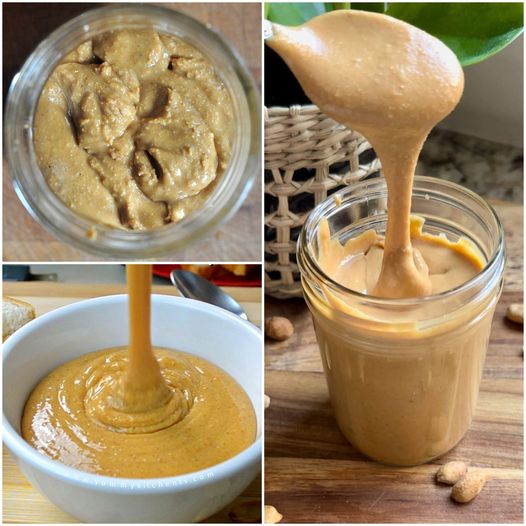ADVERTISEMENT
1. Almond Butter:
- Almond butter is lower in calories and saturated fat compared to peanut butter and provides a good source of vitamin E, magnesium, and fiber.
2. Sunflower Seed Butter:
- This is a great alternative for those with nut allergies. It’s rich in healthy fats, vitamins, and minerals, and has a slightly sweet, nutty flavor.
3. Cashew Butter:
- Cashew butter has a creamy texture and mild taste, making it a versatile substitute. It’s high in monounsaturated fats and essential minerals like magnesium and iron.
Tips for Choosing Peanut Butter
- Read Labels Carefully:
- Opt for brands that list only peanuts and perhaps a small amount of salt as ingredients.
- Watch Portion Sizes:
- Even with healthier options, it’s important to control your portions to avoid excessive calorie intake.
- Store Properly:
- Natural peanut butter can separate, so be sure to stir it well before use and store it in the refrigerator to maintain freshness and prevent oil separation.
Conclusion
While peanut butter can be part of a healthy diet when consumed in moderation, it’s important to be aware of the potential risks associated with its consumption. Consider healthier alternatives and always opt for natural varieties without added sugars and hydrogenated oils. By making informed choices, you can enjoy the benefits of nut and seed butters without compromising your health.
ADVERTISEMENT
